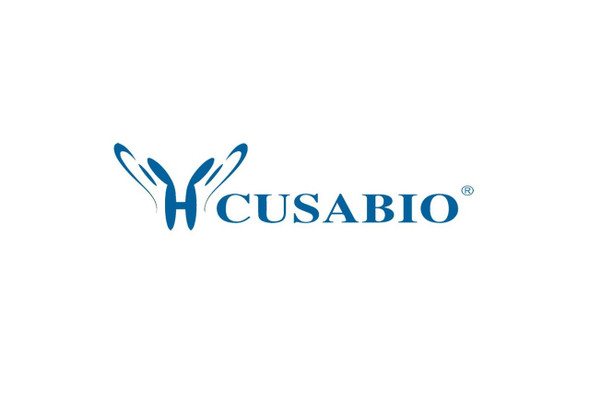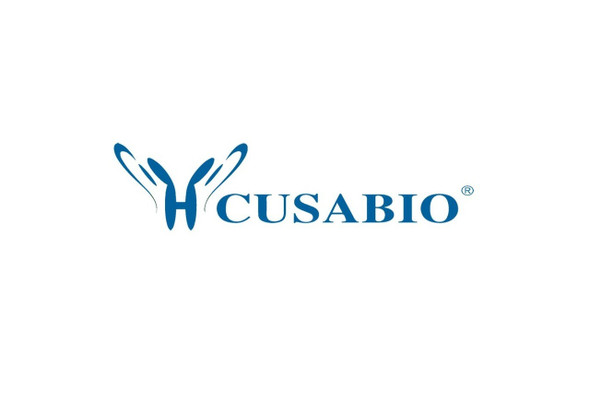Cusabio Mouse Recombinants
Recombinant Mouse Galectin-3 (Lgals3) | CSB-EP012887MO
- SKU:
- CSB-EP012887MO
- Availability:
- 3 - 7 Working Days
Description
Recombinant Mouse Galectin-3 (Lgals3) | CSB-EP012887MO | Cusabio
Alternative Name(s): Gal-3;35 kDa lectin;Carbohydrate-binding protein 35;CBP 35;Galactose-specific lectin 3;IgE-binding protein;L-34 galactoside-binding lectin;Laminin-binding protein;Lectin L-29;Mac-2 antigen
Gene Names: Lgals3
Research Areas: Cell Biology
Organism: Mus musculus (Mouse)
AA Sequence: ADSFSLNDALAGSGNPNPQGYPGAWGNQPGAGGYPGAAYPGAYPGQAPPGAYPGQAPPGAYPGQAPPSAYPGPTAPGAYPGPTAPGAYPGQPAPGAFPGQPGAPGAYPQCSGGYPAAGPYGVPAGPLTVPYDLPLPGGVMPRMLITIMGTVKPNANRIVLDFRRGNDVAFHFNPRFNENNRRVIVCNTKQDNNWGKEERQSAFPFESGKPFKIQVLVEADHFKVAVNDAHLLQYNHRMKNLREISQLGISGDITLTSANHAMI
Source: E.coli
Tag Info: N-terminal 6xHis-tagged
Expression Region: 2-264aa
Sequence Info: Full Length of Mature Protein
MW: 31.5 kDa
Purity: Greater than 85% as determined by SDS-PAGE.
Relevance: Galactose-specific lectin which binds IgE. May mediate with the alpha-3, beta-1 integrin the stimulation by CSPG4 of endothelial cells migration. Together with DMBT1, required for terminal differentiation of columnar epithelial cells during early embryogenesis. In the nucleus: acts as a pre-mRNA splicing factor. Involved in acute inflammatory responses including neutrophil activation and adhesion, chemoattraction of monocytes macrophages, opsonization of apoptotic neutrophils, and activation of mast cells. Together with TRIM16, coordinates the recognition of membrane damage with mobilization of the core autophagy regulators ATG16L1 and BECN1 in response to damaged endomembranes.
Reference: "NG2 proteoglycan promotes endothelial cell motility and angiogenesis via engagement of galectin-3 and alpha3beta1 integrin." Fukushi J., Makagiansar I.T., Stallcup W.B. Mol. Biol. Cell 15:3580-3590(2004)
Storage: The shelf life is related to many factors, storage state, buffer ingredients, storage temperature and the stability of the protein itself. Generally, the shelf life of liquid form is 6 months at -20?/-80?. The shelf life of lyophilized form is 12 months at -20?/-80?.
Notes: Repeated freezing and thawing is not recommended. Store working aliquots at 4? for up to one week.
Function:
Involvement in disease:
Subcellular Location:
Protein Families:
Tissue Specificity:
Paythway:
Form: Liquid or Lyophilized powder
Buffer: If the delivery form is liquid, the default storage buffer is Tris/PBS-based buffer, 5%-50% glycerol. If the delivery form is lyophilized powder, the buffer before lyophilization is Tris/PBS-based buffer, 6% Trehalose, pH 8.0.
Reconstitution: We recommend that this vial be briefly centrifuged prior to opening to bring the contents to the bottom. Please reconstitute protein in deionized sterile water to a concentration of 0.1-1.0 mg/mL.We recommend to add 5-50% of glycerol (final concentration) and aliquot for long-term storage at -20?/-80?. Our default final concentration of glycerol is 50%. Customers could use it as reference.
Uniprot ID: P16110
HGNC Database Link: N/A
UniGene Database Link: N/A
KEGG Database Link: N/A
STRING Database Link: N/A
OMIM Database Link: N/A









